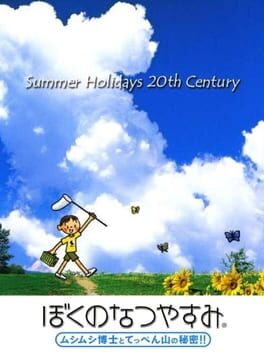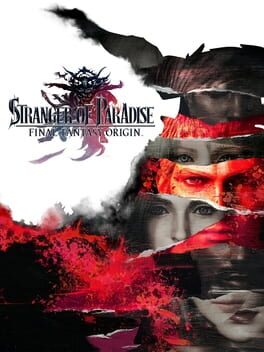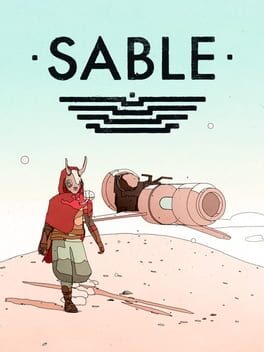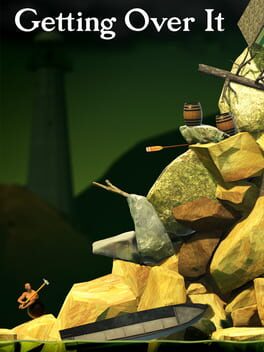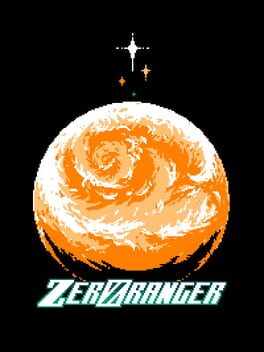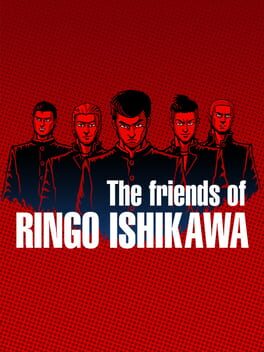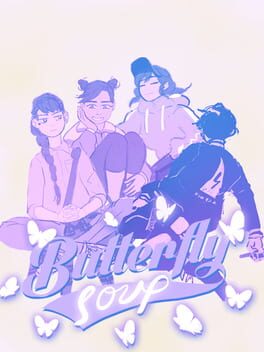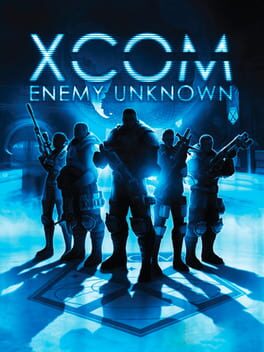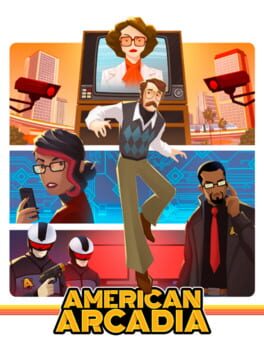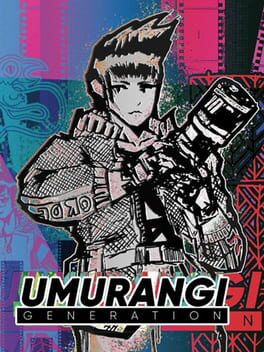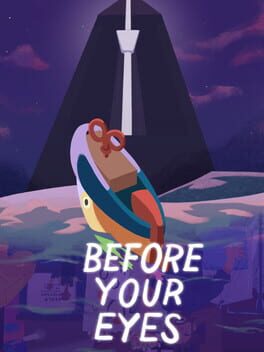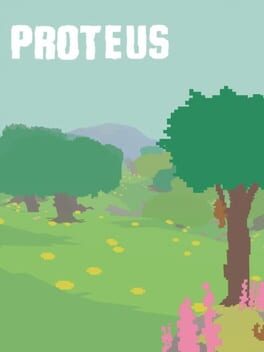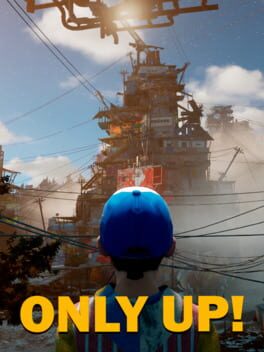rubenmg
2000
Where videogames usually tend to go for escapism and fantasy to reconnect with the sense of wonder, with innocence, with freedom... Boku no Natsuyasumi finds all of that in a more down to earth context. Every day is an adventure, there is no need for magic or silly objectives, exploring in the countryside, catching some bugs, watering flowers until they bloom… No wonder why at the end of each day the game asks you if you want to keep playing, it seems like it’s asking at the same time if you don’t want to go out and enjoy your own surroundings.
Despite being set in the 70’s, Boku no Natsuyasumi avoids falling into prison with nostalgia. Rather than keeping you trapped in an endless summer full of joy, the calendar is always moving forward and the days fly by, just as when we were kids. And there are some rough edges too, even if the game is always looking through the eyes of innocence. Between the fun of summer days there is space to talk about deciding what to do in the future, dealing with moving away from your family, the memories of a not so distant war, the grief of losing a dear one too soon… And of course, a never repeated summer cannot end in any other way but with an emotional goodbye, nothing left but memories, but nothing else needed anyway.
Despite being set in the 70’s, Boku no Natsuyasumi avoids falling into prison with nostalgia. Rather than keeping you trapped in an endless summer full of joy, the calendar is always moving forward and the days fly by, just as when we were kids. And there are some rough edges too, even if the game is always looking through the eyes of innocence. Between the fun of summer days there is space to talk about deciding what to do in the future, dealing with moving away from your family, the memories of a not so distant war, the grief of losing a dear one too soon… And of course, a never repeated summer cannot end in any other way but with an emotional goodbye, nothing left but memories, but nothing else needed anyway.
Loot, out of place sidequests, the weirdest decisions at the most crucial cutscenes, keeping everyone dressed up during the most dramatic events (poor souls that don’t disable visible headgear and have to stare to a close up of a helmet or the dumbest mask), and yet…
The action has some good fundamentals in order to keep you active and managing space, but if it stays fresh for the whole game it is because of the combination of the different variations. Small gimmicks in every mission, trying new jobs, some slight changes in the enemies that may not seem that much but end up making you plan some new strategies, specially when the placement is a little thought out, and why not, infinite comboing against the wall your least liked monster with your friends, never gets old. And bosses don’t fall behind, they often take the highlight, a good arsenal to cover all the surroundings and distances, barely taking any breath between an attack and the next, good luck finding an opening.
And what a bunch, three thirty-something years old join with two twenty-something years old to play the most visually overdesigned sci fi dungeons and dragons campaign ever. The IA distracting the boss when you need a rest, trying to keep every distraction away from your target, helping you to not drop the staggering… Not anything never seen nor complex, but always very present while fighting side by side nonetheless, giving more strength to every chit chat, to every dialogue, to every fist bump. The Warriors of Light… not, they don’t fit that role no matter which side they are viewed on, that prophecy would materialize later. What is the role of the outcasts forced to complete a prophecy that not even they understand? The biggest merit of the narrative is that even with the amount of giant obstacles that it likes to place arbitrarily, you never leave Jack's resolve, a guy that speaks in punches, and me backing up every single hit thrown. To fight with all that he has for what he knows is right, no matter the cost, with Ash, Jed, Neon and Sophia on his side, even if the role of the heroes is for another group. Finding their way to make it work.
You’ve got to be crazy if you want to change the world.
The action has some good fundamentals in order to keep you active and managing space, but if it stays fresh for the whole game it is because of the combination of the different variations. Small gimmicks in every mission, trying new jobs, some slight changes in the enemies that may not seem that much but end up making you plan some new strategies, specially when the placement is a little thought out, and why not, infinite comboing against the wall your least liked monster with your friends, never gets old. And bosses don’t fall behind, they often take the highlight, a good arsenal to cover all the surroundings and distances, barely taking any breath between an attack and the next, good luck finding an opening.
And what a bunch, three thirty-something years old join with two twenty-something years old to play the most visually overdesigned sci fi dungeons and dragons campaign ever. The IA distracting the boss when you need a rest, trying to keep every distraction away from your target, helping you to not drop the staggering… Not anything never seen nor complex, but always very present while fighting side by side nonetheless, giving more strength to every chit chat, to every dialogue, to every fist bump. The Warriors of Light… not, they don’t fit that role no matter which side they are viewed on, that prophecy would materialize later. What is the role of the outcasts forced to complete a prophecy that not even they understand? The biggest merit of the narrative is that even with the amount of giant obstacles that it likes to place arbitrarily, you never leave Jack's resolve, a guy that speaks in punches, and me backing up every single hit thrown. To fight with all that he has for what he knows is right, no matter the cost, with Ash, Jed, Neon and Sophia on his side, even if the role of the heroes is for another group. Finding their way to make it work.
You’ve got to be crazy if you want to change the world.
2021
Sable is the teenage discovery of finding one’s identity through an open journey towards the yet unknown world. The conclusion of this ritual will be to choose a mask to forge your identity in.
Most of the masks (all of them?) are related to a profession, and are obtained talking by with people somehow related to, mostly exercising, such occupation. However, Sable fails to capture every single spirit of any vocation. It’s obvious that it would abstract an aspect of each job to make a simple model of it, but it forgot to try to capture the soul for anyone to get an honest investment on what the occupation really is about. A merchant is reduced to having enough money to earn the mask, a cartographer also relies on money without even needing to tell north from south, a machinist mask is not earned through understanding and trying a hand with machinery but through doing favors to lazy people (which is most of the population of Sable). The climber isn’t that much focused on climbing (since it’s mechanically too shallow to be of interest on its own) but on completing mediocre platforming sections. The concept of what even a guardian is would be hard to understand only with what is seen in Sable, the only “active” one I encountered trusted all the weight of justice to a complete stranger and even let the just arrived finger to point who should be imprisoned, without a proper defense or a clear case constructed, a very far image of my idea of a guardian. This shallow understanding of building an identity by putting on a mask of an occupation that you barely truly understand, but earned through enough credentials, could be understood as a critique. It isn't. Sable still trusts in its ritual.
I avoided mentioning this before, but why even define yourself as a vocation? One thing is that your job or your hobby is going to take a part of your life, be it by necessity or by decision, but at what moment the ritual to define your identity is to cover your face, your unique truth, with a clonic mask? Why take a journey on your own through the desert if the final say was going to be a pick from the predefined menu? Is this the most spiritual idea of identity in a world where old habits are supposed to be buried under the sand?
Sable thinks that understanding a place in a way that it can shape your identity is to be a tourist who must do a few errands for the people who don't want to move their ass. That discovery is solving a few early test puzzle levels from the most mediocre Zelda. It's not concerned about the people who live there, in how they think, in how they face troubles in any way that isn't crying to the first stranger that comes through the door. The desert represents what the game thinks is valuable of any of those places and their people, absolute nothingness.
I decided to not wear a mask and to not complete a ritual that cannot define me. Can a mask shaped identity even be found and be true? Can identity be found or is it an ever looking process? My final decision was to get out of there, out of the desert, out of Sable, to search for the identity through the hard way, through the only way, rejecting every mask.
Most of the masks (all of them?) are related to a profession, and are obtained talking by with people somehow related to, mostly exercising, such occupation. However, Sable fails to capture every single spirit of any vocation. It’s obvious that it would abstract an aspect of each job to make a simple model of it, but it forgot to try to capture the soul for anyone to get an honest investment on what the occupation really is about. A merchant is reduced to having enough money to earn the mask, a cartographer also relies on money without even needing to tell north from south, a machinist mask is not earned through understanding and trying a hand with machinery but through doing favors to lazy people (which is most of the population of Sable). The climber isn’t that much focused on climbing (since it’s mechanically too shallow to be of interest on its own) but on completing mediocre platforming sections. The concept of what even a guardian is would be hard to understand only with what is seen in Sable, the only “active” one I encountered trusted all the weight of justice to a complete stranger and even let the just arrived finger to point who should be imprisoned, without a proper defense or a clear case constructed, a very far image of my idea of a guardian. This shallow understanding of building an identity by putting on a mask of an occupation that you barely truly understand, but earned through enough credentials, could be understood as a critique. It isn't. Sable still trusts in its ritual.
I avoided mentioning this before, but why even define yourself as a vocation? One thing is that your job or your hobby is going to take a part of your life, be it by necessity or by decision, but at what moment the ritual to define your identity is to cover your face, your unique truth, with a clonic mask? Why take a journey on your own through the desert if the final say was going to be a pick from the predefined menu? Is this the most spiritual idea of identity in a world where old habits are supposed to be buried under the sand?
Sable thinks that understanding a place in a way that it can shape your identity is to be a tourist who must do a few errands for the people who don't want to move their ass. That discovery is solving a few early test puzzle levels from the most mediocre Zelda. It's not concerned about the people who live there, in how they think, in how they face troubles in any way that isn't crying to the first stranger that comes through the door. The desert represents what the game thinks is valuable of any of those places and their people, absolute nothingness.
I decided to not wear a mask and to not complete a ritual that cannot define me. Can a mask shaped identity even be found and be true? Can identity be found or is it an ever looking process? My final decision was to get out of there, out of the desert, out of Sable, to search for the identity through the hard way, through the only way, rejecting every mask.
A platformer that invents itself from its foundation in a stale genre, reaching back to the essence. An essence that understands that everything at its root is about platforms and moving around them, not about enemies, nor levels, nor obstacles, nor lives, nor deaths, not even jumping or running. A game that doesn’t care how you reach the top, it will treat you the same either if you were lucky or you worked hard, that if you fall it will just suggest you go back up. A mountain made to piss you off, but a static platform above all, the same mountain for all, the journey only yours.
Bennett Foddy kept reinventing movement, searching for the opposite of convenience, to understand and explore that rare bodies are capable bodies too, much more interesting than any standard one. In 2017, Getting Over It was released demonstrating that you could learn to climb with a hammer the same as you learnt to walk, then run, then jump, as we already did more than 40 years ago, and all the merits and failures were yours. If you want to capture the frustration of getting used to a new body, you must avoid any standard. In 2018, just 3 months later, Celeste released and insisted, over a search of the most comfortable body to ever be put under control, that you had it hard, but that if you made it to the top, the merit was yours, you overcame yourself. About every year, hundreds of precision platformers demonstrate that there is no friction going that way, that a small touch on what is already over-explored is the opposite of self-discovery. About every year, it becomes more clear that the Getting Over It journey was truly unique and personal, that trying to replicate it already misses the point. It conquered its own top.
Bennett Foddy kept reinventing movement, searching for the opposite of convenience, to understand and explore that rare bodies are capable bodies too, much more interesting than any standard one. In 2017, Getting Over It was released demonstrating that you could learn to climb with a hammer the same as you learnt to walk, then run, then jump, as we already did more than 40 years ago, and all the merits and failures were yours. If you want to capture the frustration of getting used to a new body, you must avoid any standard. In 2018, just 3 months later, Celeste released and insisted, over a search of the most comfortable body to ever be put under control, that you had it hard, but that if you made it to the top, the merit was yours, you overcame yourself. About every year, hundreds of precision platformers demonstrate that there is no friction going that way, that a small touch on what is already over-explored is the opposite of self-discovery. About every year, it becomes more clear that the Getting Over It journey was truly unique and personal, that trying to replicate it already misses the point. It conquered its own top.
2018
There is one more or less recent trend that I really don’t like that searches for an active kind of explicit “transcendence” through games (not entirely new, but more prominent than before). Not that the sentiment is not there at all, I agree that there is some obvious arcade/synesthetic feeling that can and do elevate games, but precisely because of that feeling being inherent every reivindicacion actually sounds like “games are art” statements but many years later and more twisted. Another endless search to justify playing games as if liking games shouldn’t be more than enough (or questioning if there is a need for a justification at all).
Anyway, it doesn’t repel me that much to negate its intentions totally, contradicting myself, I’m interested in the individual interpretation on videogames that these titles want to propose, they can end up going interesting ways after all. I’ll give it to ZeroRanger that even with its pretensions that inevitably led to some headlines like “more than a shmup” or “an elevation of the genre” (in reality, making the rest look like lesser works), it’s also a humble game that shows all of its references unmasked and it really helped a lot of people to enter into an intimidating genre, at least looked from afar. The game isn’t ashamed to show its robots, aliens and whatnot mixed with the highest number of ways that you can show a third eye open, it trusts in the most gamey transcendence.
And ZeroRanger is a competent shmup, it’s very far from being one of my favorites, but I would be lying if I said that I found it uninspired. Then again, wouldn’t I be underestimating the game's own terms by calling it just “a competent shmup” when it will remind you at every second that there is something beyond? Shouldn’t I be considering what the game tries to do if not only out of respect? This is enlightenment, Ikaruga impossibly fast to read paragraphs were just flavor text compared to the insistence of ZeroRanger.
And here is where it loses me. It may be because I’m not exactly an expert on the area, but precisely reminding me each time I fail that “things aren’t going to get any easier, but I know you can make it” is not exactly the message that enlightens me the most. Are we letting introspection aside so fast to be deceived by this kind of motivation? Aside from the messages, funnily enough, this might be one of the less transcendental shmups I’ve played due to its structure. A structure that is very interesting in itself and to keep the attention of newcomers, something that I can admire, but contrary to its major interest. Unlocking more permanent continues as you get more points, letting you start from advanced levels… even the plot twist doesn’t really affect me since it’s relying more on a (very weak in my opinion) “now you should trust yourself” than in taking a new level of self-consciousness. Is the game really trusting in you or does it insist to say that it trusts you while creating its limits and aids just in case you don’t make it out by yourself? Is beating a hard challenge the climax of enlightenment or is enlightenment a never ending contemplative process that should not be deceived by focusing on achieving a goal? Is self satisfaction what we are looking for in introspection or is it something more abstract and perhaps less happy?
It’s exactly based on the traditional formula of having a run always from beginning to end where you slowly connect with the game and adapt to the new body when the arcade transcends and silently elevates itself, a connection so strong not even the continues slightly disruptive nature can break it. Contrary to the supposed compromised decision of the twist, my real recent moment of self-consciousness in a shmup was when I tried my first Touhou a few months ago and a friend told me “at the end, completing 1cc or not is something for you and no one else”. Bad ending for some, I didn’t get the 1cc. Good ending for me, I noticed it never was about that.
Anyway, it doesn’t repel me that much to negate its intentions totally, contradicting myself, I’m interested in the individual interpretation on videogames that these titles want to propose, they can end up going interesting ways after all. I’ll give it to ZeroRanger that even with its pretensions that inevitably led to some headlines like “more than a shmup” or “an elevation of the genre” (in reality, making the rest look like lesser works), it’s also a humble game that shows all of its references unmasked and it really helped a lot of people to enter into an intimidating genre, at least looked from afar. The game isn’t ashamed to show its robots, aliens and whatnot mixed with the highest number of ways that you can show a third eye open, it trusts in the most gamey transcendence.
And ZeroRanger is a competent shmup, it’s very far from being one of my favorites, but I would be lying if I said that I found it uninspired. Then again, wouldn’t I be underestimating the game's own terms by calling it just “a competent shmup” when it will remind you at every second that there is something beyond? Shouldn’t I be considering what the game tries to do if not only out of respect? This is enlightenment, Ikaruga impossibly fast to read paragraphs were just flavor text compared to the insistence of ZeroRanger.
And here is where it loses me. It may be because I’m not exactly an expert on the area, but precisely reminding me each time I fail that “things aren’t going to get any easier, but I know you can make it” is not exactly the message that enlightens me the most. Are we letting introspection aside so fast to be deceived by this kind of motivation? Aside from the messages, funnily enough, this might be one of the less transcendental shmups I’ve played due to its structure. A structure that is very interesting in itself and to keep the attention of newcomers, something that I can admire, but contrary to its major interest. Unlocking more permanent continues as you get more points, letting you start from advanced levels… even the plot twist doesn’t really affect me since it’s relying more on a (very weak in my opinion) “now you should trust yourself” than in taking a new level of self-consciousness. Is the game really trusting in you or does it insist to say that it trusts you while creating its limits and aids just in case you don’t make it out by yourself? Is beating a hard challenge the climax of enlightenment or is enlightenment a never ending contemplative process that should not be deceived by focusing on achieving a goal? Is self satisfaction what we are looking for in introspection or is it something more abstract and perhaps less happy?
It’s exactly based on the traditional formula of having a run always from beginning to end where you slowly connect with the game and adapt to the new body when the arcade transcends and silently elevates itself, a connection so strong not even the continues slightly disruptive nature can break it. Contrary to the supposed compromised decision of the twist, my real recent moment of self-consciousness in a shmup was when I tried my first Touhou a few months ago and a friend told me “at the end, completing 1cc or not is something for you and no one else”. Bad ending for some, I didn’t get the 1cc. Good ending for me, I noticed it never was about that.
In the first half of the game or so it's pretty clear that you are playing one of the best puzzle games ever created by being clearly presented with a fully transparent physical logic that will never play no cheap magic tricks and do what a lot, or all, puzzle games always seek and never reach, keep showing level after level defying your conception of what can even be done with very simple rules every single time.
Now, earlier for some, later for others, you're going to get stuck. That's fine. About that time, the game clearly reveals itself as a masterpiece.
It’s at those times that the background elements will come to the foreground. While standing still with a total lack of ideas, searching for anything to hold onto, you’ll start appreciating the colors of the day and night cycle, the flower leaves rising with your steps, the ever present synth that rarely makes a full melody, the fire crackling, the waves threatening your sausages... You’ll even give it a rest, go take a walk, go live. And you’ll return without expecting it. The map is static, you know the exact consequence of an action before the movement, with the game closed too. So you’ll go to sleep and replace the sheep to count with the level that’s been there for days, already burnt into you. Take advantage of the lack of logic to build the possibilities back.
I guess there is something about frustration and wisdom (or knowledge) here, but it’s related to a particular greater topic: inspiration. And the patience it needs. You cannot invoke it by stomping against the same wall again and again in the same way. You can only clear your head, give it time, distance and hope that when inspiration comes you will be ready to welcome it properly.
Keep dreaming those sausages.
Now, earlier for some, later for others, you're going to get stuck. That's fine. About that time, the game clearly reveals itself as a masterpiece.
It’s at those times that the background elements will come to the foreground. While standing still with a total lack of ideas, searching for anything to hold onto, you’ll start appreciating the colors of the day and night cycle, the flower leaves rising with your steps, the ever present synth that rarely makes a full melody, the fire crackling, the waves threatening your sausages... You’ll even give it a rest, go take a walk, go live. And you’ll return without expecting it. The map is static, you know the exact consequence of an action before the movement, with the game closed too. So you’ll go to sleep and replace the sheep to count with the level that’s been there for days, already burnt into you. Take advantage of the lack of logic to build the possibilities back.
I guess there is something about frustration and wisdom (or knowledge) here, but it’s related to a particular greater topic: inspiration. And the patience it needs. You cannot invoke it by stomping against the same wall again and again in the same way. You can only clear your head, give it time, distance and hope that when inspiration comes you will be ready to welcome it properly.
Keep dreaming those sausages.
Disco Elysium is undeniably one of the most concentrated, and achieved, works to focus on individual introspection on the most granular level. It’s clear about it from the get go, it begins with a typical RPG character builder, then an inner dialogue, with the background of a pitch black screen, then the first steps in the game in a cramped hotel room, where the inner voices will be your first companions, and finally the first long dialogue tree being established with, of course, a mirror. There is an important detail revealed in this first contact, the main character doesn’t remember anything, not even his own name. If there is not a memory, not a past, only one thing remains, the current self. The absence and rediscovery of identity flow in a perpetual conversation from our protagonist to the whole of Martinaise and back.
Though its RPG abstractions may seem childish at first (and they are, as in imaginative), the game creates a system to represent the particular human being through their various voices/traits. It zooms into what seemed to be already atomic and divides again. It may look like a total misunderstanding of something that is impossible to classify, let alone gamify, though, the brilliance is in being unashamed of its decision, of using the system as a means to construct the being, and not as a goal.
The presence of a layer of humor helps to ease its mechanical premise, and it won’t take long to be delighted with the flavor that each voice has. This same humor helps to introduce its devastated world. Disco Elysium’s premise is an easy subject to throw in the misery well, yet the total opposite occurs. The at first chaotic mind of our detective turns out to be the perfect lenses through which to discover an hypersensorial world where each corner and conversation is a suggestive sign of life, past or present, still palpable regardless. As our job is that of a detective, our instinct will be of adventuring, exploring and, of course, talking. The conversations are soon revealed as labyrinths where each character traces a glimpse of their own world. A world so present and so alive in so many people that their existence and their connection end up weaving the tapestry that is the true human life of seemingly dead Martinaise.
The game is insistent on searching for life in the home of death. A commercial mall where no store survives becomes the place for a woman to give birth to roleplaying dice, even if the roleplayers and game makers are gone too. An abandoned church becomes the home of the night raves of the youth that wants to connect with the ethereal in their own terms. The human vitalism is evident, the melancholy of Disco Elysium is noticing that the unstoppable external interests to exploit Martinaise inevitably permeate every one of these lives.
After life -- death;
After death -- life again.
Though its RPG abstractions may seem childish at first (and they are, as in imaginative), the game creates a system to represent the particular human being through their various voices/traits. It zooms into what seemed to be already atomic and divides again. It may look like a total misunderstanding of something that is impossible to classify, let alone gamify, though, the brilliance is in being unashamed of its decision, of using the system as a means to construct the being, and not as a goal.
The presence of a layer of humor helps to ease its mechanical premise, and it won’t take long to be delighted with the flavor that each voice has. This same humor helps to introduce its devastated world. Disco Elysium’s premise is an easy subject to throw in the misery well, yet the total opposite occurs. The at first chaotic mind of our detective turns out to be the perfect lenses through which to discover an hypersensorial world where each corner and conversation is a suggestive sign of life, past or present, still palpable regardless. As our job is that of a detective, our instinct will be of adventuring, exploring and, of course, talking. The conversations are soon revealed as labyrinths where each character traces a glimpse of their own world. A world so present and so alive in so many people that their existence and their connection end up weaving the tapestry that is the true human life of seemingly dead Martinaise.
The game is insistent on searching for life in the home of death. A commercial mall where no store survives becomes the place for a woman to give birth to roleplaying dice, even if the roleplayers and game makers are gone too. An abandoned church becomes the home of the night raves of the youth that wants to connect with the ethereal in their own terms. The human vitalism is evident, the melancholy of Disco Elysium is noticing that the unstoppable external interests to exploit Martinaise inevitably permeate every one of these lives.
After life -- death;
After death -- life again.
The game starts with a battle inside a train. In the aftermath, the beaten thugs stay on the floor until the train stops. Once off, another fight begins. After that, you proceed to the next screen and another fight begins. This one has no end, just a fade to black and a title drop. No catharsis on any punch or on any victory. After that, another message. A year has gone by. The same gang feud is still going on and getting worse.
After this skip, the first thing you see is Ringo's professor telling him that the last days of high school are coming up, and it’s time to decide where to head on with your life. In here, the already decontextualized beat’em up setting gains a new dimension when noticing that the violence is not just non-cathartic, but a background. Some gangs fight each other, some others want to fight you, you can run away from any of them and if you get beat up there is no fail state, just another action in the world and waking at home after some rest.
This may be a disheartening view of the world just because, but when examining your own actions, it becomes evident that there is no other way, or not easily so. You have no financial support and will starve for most of the time, at the very least on the first days. Your only income source is to pick money from beaten thugs, by your own hand or not, and it’s easy to assume that most of the teenagers around are in a very similar place.
The means for covering basic necessities is just a small part, since Ringo’s life is explored in all its aspects, since he wakes until he goes to sleep. Here it is interesting to see his approach to hobbies or interests like literature, studies, or even exercise, be it through fights or through training with some masters. In any case, the result of taking interest in those topics will be some numbers going up. Simple abstraction or not, intentional or not, despite whether Ringo is interested in what he is doing or not, what remains is a cold number, an objective. This could be compared with how modern Persona games free time actions help you build stats making every decision a strategic decision, at least partially, but here the answer is more vague, or directly non-existent, there is no benefit to what to do or not to do because there are no good or bad outcomes. The usual short length on most events, just a few lines of dialogue, help to convey both the fugacity and sudden impact of the small moments and their relative insignificance on the bigger picture when searching for a change.
The game takes influence from Yakuza and Shenmue, and while it’s easy to see where it comes from, there is a major difference. There is no immediate catharsis on the infinite time for side activities like in Yakuza and no real objective to struggle for like in Shenmue. If anything, it looks more like what San Andreas would be if there were no missions, just going around the neighborhood as the days go by. But the days will eventually end. To me, the most similar game to Ringo Ishikawa is Boku no Natsuyasumi.
Of course, with a very different tone, there is a similar sense in getting up every day and going around from one screen to another looking for things to do in the city. Also, at least in my case, a certain routine started to appear, making each day like a small poetry exercise. I liked to go to some places at some time, to repeat some activities, to create my own daily plan in both games. In both, the intention is to get the better of every day. In Boku no Natsuyasumi, the conclusion was that even the days when nothing happened were as good as any other. In Ringo Ishikawa, even when something happens, the sense is that of still being lost, and then marching another day trying to find something.
Here is a lot to praise about how the map and the scenarios are constructed. Even though the tall infinite buildings can be seen in the background of many screens, the feeling when running around is that the place is too small and that there is a kind of life that cannot be escaped whatever you do.
If Kunio-kun and the eighties manga school gangster aesthetic suggest some sense of freedom through the sheer strength of youth, Ringo Ishikawa uses the template to illustrate the opposite, the end of the fantasy and the realization of how hard it is for a teenager to escape from where they are, or if it is even possible.
I went to school every day because I knew my friends were there.
https://www.youtube.com/watch?v=MTeK48Z2HuA
After this skip, the first thing you see is Ringo's professor telling him that the last days of high school are coming up, and it’s time to decide where to head on with your life. In here, the already decontextualized beat’em up setting gains a new dimension when noticing that the violence is not just non-cathartic, but a background. Some gangs fight each other, some others want to fight you, you can run away from any of them and if you get beat up there is no fail state, just another action in the world and waking at home after some rest.
This may be a disheartening view of the world just because, but when examining your own actions, it becomes evident that there is no other way, or not easily so. You have no financial support and will starve for most of the time, at the very least on the first days. Your only income source is to pick money from beaten thugs, by your own hand or not, and it’s easy to assume that most of the teenagers around are in a very similar place.
The means for covering basic necessities is just a small part, since Ringo’s life is explored in all its aspects, since he wakes until he goes to sleep. Here it is interesting to see his approach to hobbies or interests like literature, studies, or even exercise, be it through fights or through training with some masters. In any case, the result of taking interest in those topics will be some numbers going up. Simple abstraction or not, intentional or not, despite whether Ringo is interested in what he is doing or not, what remains is a cold number, an objective. This could be compared with how modern Persona games free time actions help you build stats making every decision a strategic decision, at least partially, but here the answer is more vague, or directly non-existent, there is no benefit to what to do or not to do because there are no good or bad outcomes. The usual short length on most events, just a few lines of dialogue, help to convey both the fugacity and sudden impact of the small moments and their relative insignificance on the bigger picture when searching for a change.
The game takes influence from Yakuza and Shenmue, and while it’s easy to see where it comes from, there is a major difference. There is no immediate catharsis on the infinite time for side activities like in Yakuza and no real objective to struggle for like in Shenmue. If anything, it looks more like what San Andreas would be if there were no missions, just going around the neighborhood as the days go by. But the days will eventually end. To me, the most similar game to Ringo Ishikawa is Boku no Natsuyasumi.
Of course, with a very different tone, there is a similar sense in getting up every day and going around from one screen to another looking for things to do in the city. Also, at least in my case, a certain routine started to appear, making each day like a small poetry exercise. I liked to go to some places at some time, to repeat some activities, to create my own daily plan in both games. In both, the intention is to get the better of every day. In Boku no Natsuyasumi, the conclusion was that even the days when nothing happened were as good as any other. In Ringo Ishikawa, even when something happens, the sense is that of still being lost, and then marching another day trying to find something.
Here is a lot to praise about how the map and the scenarios are constructed. Even though the tall infinite buildings can be seen in the background of many screens, the feeling when running around is that the place is too small and that there is a kind of life that cannot be escaped whatever you do.
If Kunio-kun and the eighties manga school gangster aesthetic suggest some sense of freedom through the sheer strength of youth, Ringo Ishikawa uses the template to illustrate the opposite, the end of the fantasy and the realization of how hard it is for a teenager to escape from where they are, or if it is even possible.
I went to school every day because I knew my friends were there.
https://www.youtube.com/watch?v=MTeK48Z2HuA
2017
It’s nice to see Butterfly Soup high school nostalgic tale not because it’s more or less accurate (who knows) but because it believes in a teenage ideal where being yourself is accepted and received with love. It’s a letter of hope. Even if the world opposes you, even if your parents oppose you, you can find that group of friends that will understand you. The ideal of Butterfly Soup is not one where all hardships around you magically disappear, but one where the rebellious spirit of Min (and everyone else) is worth fighting for. It’s worth fighting for your truth, for what’s right, it’s worth to be dumb and straightforward and to hear your heart. If made up rules don’t fit who you are, jump over them. Your life’s always ahead and being yourself is a risk you should always take.
2012
The weirdest decision in XCOM is having the ironman mode not being optional, but strongly unadvised for the first try. Don’t listen, put it on. It’s not about difficulty, choose easy if you want to, it is about not losing sense. About thinking how rigged are the odds of failing an 80% shot and how right was your call on a lucky 50/50. Really, permanent deaths are not that much of a deal compared to how vital it is to feel that there is only one chance at a moment, to live with your decisions and getting to see when there is no going back, that most of them weren’t neither right nor wrong, just multiple ways of uncertainty.
It also reinforces a defense approach because risks cannot be rewinded until turned into hits. Obviously, the defensive focus sounds bad because usually the defensive stance in games means the worst part, not here though. Don’t venture into the dark, don’t stay uncovered, we are not in this fight to conquer but to defend. It isn’t cowardice to take advantage of the infinite turns, the courage is assumed upon stepping into the battle, it’s about wit. A small step at a time, no turn is bad as long as the final consequence can be explained in that you took care. Let the aliens come, let them retreat, take advantage of whatever they do, split the team to cover all the angles, together in spirit but not clogged with fear.
What’s the worst that can happen? You can’t make it and get the bad ending? As long as you fought with all you had every single time, who can call that as a loss?
It also reinforces a defense approach because risks cannot be rewinded until turned into hits. Obviously, the defensive focus sounds bad because usually the defensive stance in games means the worst part, not here though. Don’t venture into the dark, don’t stay uncovered, we are not in this fight to conquer but to defend. It isn’t cowardice to take advantage of the infinite turns, the courage is assumed upon stepping into the battle, it’s about wit. A small step at a time, no turn is bad as long as the final consequence can be explained in that you took care. Let the aliens come, let them retreat, take advantage of whatever they do, split the team to cover all the angles, together in spirit but not clogged with fear.
What’s the worst that can happen? You can’t make it and get the bad ending? As long as you fought with all you had every single time, who can call that as a loss?
2023
Al final de un juego que tiene plataformas de mentira, sigilo de mentira, puzzles de mentira, una trama distópica haciendo críticas de mentira sobre nada, se revela lo obvio. El juego no tiene ni una pizca de esperanza de que las cosas puedan ir a mejor o de que los seres humanos se comporten como tal, y en los créditos se asegura de mostrar que todo intento de su (pobre y falsa) idea de revolución es devorado por el mercado.
Esto se debe a que es un juego devorado por el mercado, por la tendencia, por la mentira, por hacer porque sí, por ser rentable, porque no cree que los humanos tengan nada que hacer por gusto, porque cree que cualquiera se vende o como poco se acaba engatusando por el mal. En esta secuencia de créditos con tono burlón y desesperanzador, el punto de miseria más alto es uno inesperado y accidental. Entre los mensajes de agradecimiento de los desarrolladores, por lo general nada fuera de lo normal, uno de ellos dedica unas palabras muy sentidas a su madre fallecida recientemente. Después de tantas horas de falsedad choca ver un acto tan escondido y tan humano de la nada, que tarda poco en desaparecer de pantalla mientras una versión ensalzada de ironía de la canción recurrente principal sigue sonando, mientras las imágenes de fondo y la escena post créditos se suceden perpetuando que el ser humano no importa y que no tiene capacidad de empatía ni de amor.
Esto se debe a que es un juego devorado por el mercado, por la tendencia, por la mentira, por hacer porque sí, por ser rentable, porque no cree que los humanos tengan nada que hacer por gusto, porque cree que cualquiera se vende o como poco se acaba engatusando por el mal. En esta secuencia de créditos con tono burlón y desesperanzador, el punto de miseria más alto es uno inesperado y accidental. Entre los mensajes de agradecimiento de los desarrolladores, por lo general nada fuera de lo normal, uno de ellos dedica unas palabras muy sentidas a su madre fallecida recientemente. Después de tantas horas de falsedad choca ver un acto tan escondido y tan humano de la nada, que tarda poco en desaparecer de pantalla mientras una versión ensalzada de ironía de la canción recurrente principal sigue sonando, mientras las imágenes de fondo y la escena post créditos se suceden perpetuando que el ser humano no importa y que no tiene capacidad de empatía ni de amor.
2020
Static places that are already fixed in time and space, is photography worthless there? Well, there comes perspective as a way of reinterpreting those places, emphasizing what the photographer considers most important.
But before the player can put their subjective view there are objectives to complete. While a weird decision, to say the least, I can welcome the developers giving a guiding hand to help lazier people (like me) in appreciating the details of these spaces. But what is it that the developers emphasize with these objectives? I’m sorry but I hope it is understandable that I don’t really have much energy left after making me shoot “a text that reads 'Property of the UN' in a sarcastic tone” or “a picture that contains ‘Gamer’ at least 7 times” (I don’t need to search for neoliberalism when it is all over the place), applying some filters to the photos, doing all of that hopefully in less than 10 minutes and then getting paid some money.
At least after that I can give it a rest and now take on a more free view of the stages. But I’m still unconvinced. The world is ending so I get the carefree youth trying to enjoy what they have left with the 15 years old nihilism written on the walls, I’ll let that slip. The critique of the world capitalizing the worst disaster even when the world is about to end is neat, definitely shows that the game was developed through 2020. The critique to cops and military forces? That’s another story. Countless messages written on walls denouncing how bad cops are and how hollow it ends up being a soldier. But then you turn around and what are these supposedly bad forces doing? Soldiers fighting the aliens with all they have in order to protect humanity? I understand the duality between the youth that has already accepted the end and the forces that refuse to give up, but neither of them are exactly doing anything bad, just dealing with the inevitable as best as they can.
What is left? I’ll go and ignore everything and take a picture of all my friends, nothing can take that away no matter when and where. Everyone on frame... 3, 2, 1…
“3.17$ COLORFUL DETAILED FISH EYE GROUP”
But before the player can put their subjective view there are objectives to complete. While a weird decision, to say the least, I can welcome the developers giving a guiding hand to help lazier people (like me) in appreciating the details of these spaces. But what is it that the developers emphasize with these objectives? I’m sorry but I hope it is understandable that I don’t really have much energy left after making me shoot “a text that reads 'Property of the UN' in a sarcastic tone” or “a picture that contains ‘Gamer’ at least 7 times” (I don’t need to search for neoliberalism when it is all over the place), applying some filters to the photos, doing all of that hopefully in less than 10 minutes and then getting paid some money.
At least after that I can give it a rest and now take on a more free view of the stages. But I’m still unconvinced. The world is ending so I get the carefree youth trying to enjoy what they have left with the 15 years old nihilism written on the walls, I’ll let that slip. The critique of the world capitalizing the worst disaster even when the world is about to end is neat, definitely shows that the game was developed through 2020. The critique to cops and military forces? That’s another story. Countless messages written on walls denouncing how bad cops are and how hollow it ends up being a soldier. But then you turn around and what are these supposedly bad forces doing? Soldiers fighting the aliens with all they have in order to protect humanity? I understand the duality between the youth that has already accepted the end and the forces that refuse to give up, but neither of them are exactly doing anything bad, just dealing with the inevitable as best as they can.
What is left? I’ll go and ignore everything and take a picture of all my friends, nothing can take that away no matter when and where. Everyone on frame... 3, 2, 1…
“3.17$ COLORFUL DETAILED FISH EYE GROUP”
2021
In a lot of ways, pretty much the opposite of Unpacking. One remembered life through the spaces lived in, taking all the time in the world to place and contemplate the smallest details to a pixel level. Before Your Eyes looks at life as moments, not completely defined even, just extracts surrounded in a black fog. Segments that the more you try to concentrate on not losing sight of the quicker they get lost. If Unpacking tried to tell that the personal was defined through the planned detail that decorated life on a general level at a time, Before Your Eyes defines personal as the particular moments that, for any reason, stayed with you, and how your gaze navigated them. The implication of life against showing the people who were there. The isometric all-mighty observer versus the first person who cannot do anything but blink and move forward. Future decisions being a yearn, and yet they seem insignificant when appreciating the road traveled.
2013
Maybe it's just my personal associations with the pixelated view of a world full of nature and my memories of the indie scene at the time, but the first impression of Proteus is reminiscent of Minecraft. Where the world importance comes from its elements and not their particular arrangement, capable of being procedurally generated, making each particular world unique and common at the same time. The major difference, all your world changing actions are taken away. What is left is one of the most important aspects in any game, and in life, to observe. Navigating through a hypersensitive world, since observation and perception are the sole focus, everything seems to carry some life.
Observing how the world changes and how perception changes the world. Getting atop a mountain when the rain comes to see the sky again, to know what time it is, look down again to see that the land has turned into the sea, descend into it and watch how the sky is now the sea. To find comfort upon finding that this world has a moon when the night comes too. Try to find a pattern in the stars, look at the land and see that the lights are mirrored below. Discover that, same as everywhere, magic appears at night.
One of the most important moments is to stand still and observe what's out of reach. How the clouds move, how the sun goes down and how the moon rises on the opposite side. Everything is the life of nature, except for the human tombstones. Because it's about opposites too. To appear on the sea facing the land where to spend the rest of your time. To do anything but escape the cycle of day and night and then seasons and then life.
If Proteus is about life, and life is about observing, the game, of course, can only end in one way. An eye getting closed.
Observing how the world changes and how perception changes the world. Getting atop a mountain when the rain comes to see the sky again, to know what time it is, look down again to see that the land has turned into the sea, descend into it and watch how the sky is now the sea. To find comfort upon finding that this world has a moon when the night comes too. Try to find a pattern in the stars, look at the land and see that the lights are mirrored below. Discover that, same as everywhere, magic appears at night.
One of the most important moments is to stand still and observe what's out of reach. How the clouds move, how the sun goes down and how the moon rises on the opposite side. Everything is the life of nature, except for the human tombstones. Because it's about opposites too. To appear on the sea facing the land where to spend the rest of your time. To do anything but escape the cycle of day and night and then seasons and then life.
If Proteus is about life, and life is about observing, the game, of course, can only end in one way. An eye getting closed.
2023
It may look like a cheap move to compare Only Up to Getting Over It, in which I commit the error of asking for a game to be something that it isn't. I think it’s interesting to compare where it comes from (as the influence is clear, and even explicit) just as it would be fair to compare Getting Over It to Sexy Hiking.
What Bennet Foddy saw in its inspiration was that the seed towards new ways of conception could be found in places that embraced the unconventional, that didn't care, or even preferred, to be "janky", as it allowed for the freedom to create its own discourse without having to answer to any expectations. His mountain of "digital junk" in the form of collected free assets wasn't (just) an ironic commentary on how everything online is just waste nowadays (I know there are some connotations about it, but they are more bridges towards other more interesting ideas). What was valuable in its collage of a map was to see through all that worthless collection and carefully select and position everything in a way that found a new meaning. To appreciate the shape of a lamp through the brutality of the hammer by moving it as carefully as an artist's brush.
Only Up seems to accentuate the collage of jank. Now it's a longer, fully 3D map, the companion voice is automated and even the movement itself is, or looks like, a preset moveset from any modern 3D engine. In this movement that clings into collisions the same no matter the shape, the objects matter no more, a lamp is just another box of a different size. The length of the game is less defined by the particular focus on the detail and more on repeating mechanical and repetitive motions, continuing to believe in a tendency where quantity beats quality, or at least carefulness. Where Getting Over It found meaning in its assets by making them an integral part of its revolutionary new take on platformers, Only Up only gets it in an even weaker comment of modern waste and a shield of irony.
If you think that the movement is uninspired, the response is that it's a purposeful ironic comment. If the lack of ideas to make an interesting platformer keeps appearing again and again, it isn’t a signal that there was no purpose to make a good game, but another ironic comment.
Getting Over It found value in everything through the delicate strokes of the hammer that moved through its mountain. Only Up believes that nothing of value can be done, we are at a point of no return and movement cannot be conceived as something interesting, it's just a standard to be mocked about. The worst part is that the wave of infinite clones is already feeding its empty argument.
What Bennet Foddy saw in its inspiration was that the seed towards new ways of conception could be found in places that embraced the unconventional, that didn't care, or even preferred, to be "janky", as it allowed for the freedom to create its own discourse without having to answer to any expectations. His mountain of "digital junk" in the form of collected free assets wasn't (just) an ironic commentary on how everything online is just waste nowadays (I know there are some connotations about it, but they are more bridges towards other more interesting ideas). What was valuable in its collage of a map was to see through all that worthless collection and carefully select and position everything in a way that found a new meaning. To appreciate the shape of a lamp through the brutality of the hammer by moving it as carefully as an artist's brush.
Only Up seems to accentuate the collage of jank. Now it's a longer, fully 3D map, the companion voice is automated and even the movement itself is, or looks like, a preset moveset from any modern 3D engine. In this movement that clings into collisions the same no matter the shape, the objects matter no more, a lamp is just another box of a different size. The length of the game is less defined by the particular focus on the detail and more on repeating mechanical and repetitive motions, continuing to believe in a tendency where quantity beats quality, or at least carefulness. Where Getting Over It found meaning in its assets by making them an integral part of its revolutionary new take on platformers, Only Up only gets it in an even weaker comment of modern waste and a shield of irony.
If you think that the movement is uninspired, the response is that it's a purposeful ironic comment. If the lack of ideas to make an interesting platformer keeps appearing again and again, it isn’t a signal that there was no purpose to make a good game, but another ironic comment.
Getting Over It found value in everything through the delicate strokes of the hammer that moved through its mountain. Only Up believes that nothing of value can be done, we are at a point of no return and movement cannot be conceived as something interesting, it's just a standard to be mocked about. The worst part is that the wave of infinite clones is already feeding its empty argument.
